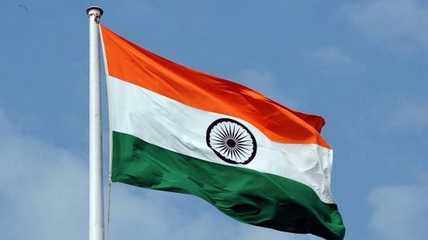
BEIJING, June 1 (APP): India is using visa restrictions as a tool to prevent media contacts between China and India, which is exacerbating bilateral tensions.
According to the Wall Street Journal, China and India have effectively kicked out a large number of each other’s journalists recently by denying visa renewals.
In response, Chinese Foreign Ministry Spokesperson Mao Ning said that Chinese journalists had suffered unfair and discriminatory treatment in India for a long time.
In 2017, the Indian side shortened the period of validity of visas held by Chinese journalists in India to three months or even one month without any valid reason.
Since 2020, the Indian side has refused to review and approve Chinese journalists’ applications for stationing in India.
And till now, the Indian side has not renewed visa of the last Chinese journalist in the country.
The Indian side’s move is an obvious provocation. India has repeatedly denied visas to Chinese journalists for no reason, but accused China of “freezing” visas for Indian journalists.
It should be noted that what China has taken are actually “appropriate counter-measures to safeguard the legitimate rights and interests of Chinese media organizations.”
Lan Jianxue, director of the Department for Asia-Pacific Studies at the China Institute of International Studies, told the Global Times that “India has been imposing strict restrictions on the visas of Chinese journalists, which reflects the Indian government’s deliberate interference and restriction of exchanges between the two countries.”
His views were echoed by Long Xingchun, a professor at the School of International Relations at Sichuan International Studies University, who believed such moves show that India lacks sincerity in improving China-India relations.
For both India and China, journalists play a crucial role in enhancing mutual understanding and communication.
However, since the border stand-off in 2020, exchanges between the two countries have been largely restricted by India, and now there is an even more extreme approach of cutting off channels for journalists and media reports.
This is not conducive to India’s interests or to China-India relations. The Indian government’s move to shut off channels for mutual understanding will also jeopardize India’s international image.
India will host the G20 and SCO summits this year, which is an opportunity to present its national image to the international community.
“If India shows such a conservative and radical image to other countries, it obviously runs counter to its mission of wanting to present itself as a major global power. I can only say that India loses a good chance to burnish its image on the international stage,” Lan said.
In addition, there is a problem that has persisted for quite some time – India and China have been getting to know each other through the Western media.
“Western reports on China and India are biased and distorted, which only serves to damage China-India relations while benefiting the West,” Long said.
He further adds that “looking at each other through a third party will lead to distortions, and it is more convenient to dispatch journalists to understand each other in a direct and correct manner.”
There have been some conflicts between China and India, including territorial issues that are difficult to resolve in the short term.
However, these issues can be put aside for the time being, and the two sides should promote friendly and cooperative relations in other areas, such as people-to-people exchanges and media relations.
Putting a barrier between journalists from the two sides will only increase misunderstandings, especially among the public, which will eventually imperil China-India relations.




